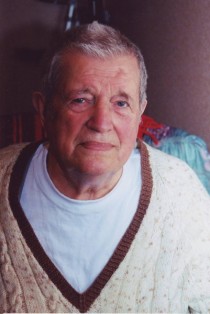| Unit or location | Role | Posted from | until |
|---|---|---|---|
| The Garth, Bilting, Kent | Royal Engineers Non-Commissioned Officer | Unknown | Unknown |
John McKie was a 20-year old sapper in 262 Field Company Royal Engineers based at Chatham at the outbreak of the war. His unit was commanded by a Major Morris.
They went to France with the British Expeditionary Force where he received a head wound. He was evacuated via Boulogne. Out of the 260 men he went with to France only 80 returned.
"Those of us who survived were sent to Bifrons, a country house near Bridge, where we immediately started to train as a raiding party for attacks against the French coast. The idea was not pursued, and we were sent to Bognor Regis.
Soon after two-man sapper teams were sent to Bilting to construct operational bases. Sapper Swan and I were the second two-man team sent to Bilting. We supervised construction work on the Airship Hole, two in Kings Wood (one in a hen coop and another in a quarry) and one in a road-side rubbish dump. The labour force for the Airship Hole was made up of Black Watch soldiers. They were dressed to the nines and turned up with all their kit. We did not follow the same route twice in a row to the Airship Hole. We used a tree trunk to cover the entrance shaft.
The sappers were billeted in an empty bungalow in Bilting. There was another sapper, Jimmy Richards, who was based at Bilting for a longer period. Even though he was an enlisted man and not an officer he had his wife billeted in digs at Godmersham. He was well educated and came from Eastbourne. He worked for the Hong Kong and Shanghai Bank before the war. He might have received a commission in the Royal Artillery later in the war. After the war I heard he bought shares in the nearby mushroom farm.
There were Lovat Scouts and two RAF wireless operators at The Garth. The Lovats were used to camouflage the operational bases. We trained men in the use of Canadian C8 and Plastic Explosive. Peter Fleming was accompanied by a Corporal Sapper.”
Adrian Westwood who interviewed John McKie
